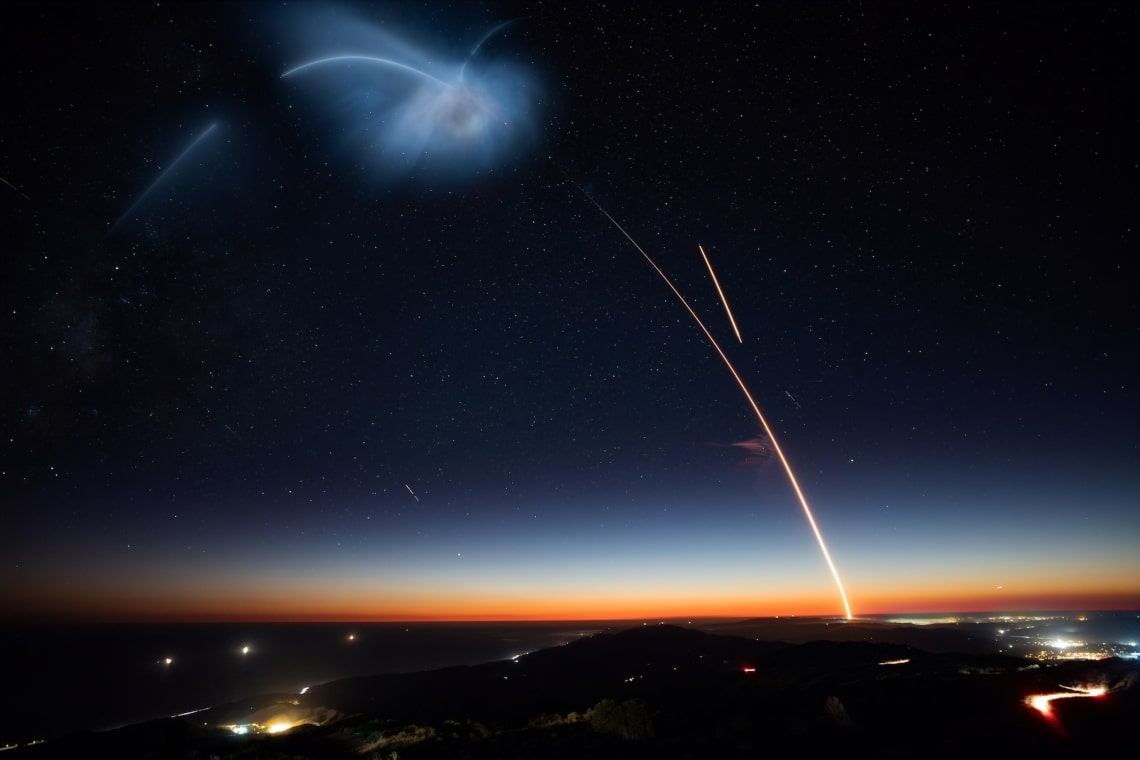The news comes after Elon Musk said in recent days that he would not be able to secure the service indefinitely due to high costs for his company SpaceX.
The entrepreneur had explained that SpaceX spends nearly $20 million a month to maintain satellite services in Ukraine and has spent about $80 million to activate and support Starlink in the territory.
Summary
Elon Musk’s help to Ukraine through SpaceX
Specifically, Starlink is a constellation of satellites currently being built by the private US aerospace manufacturer SpaceX for low-latency broadband global satellite internet access.
Despite early statements, Musk quickly backtracked, declaring that he would continue to fund the service:
“To be precise, 25,300 terminals have been sent to Ukraine, but, at the moment, only 10,630 are paying for the service.”
Starlink has helped Ukrainian civilians and military personnel stay online in recent months. Ukraine’s deputy premier, Mykhailo Fedorov, said last week that Starlink’s services have helped restore energy and communications infrastructure in critical areas.
The hardware terminals including dish, router and connection cables were provided by several nations (e.g., the US and Poland), while the biggest point of impact would be related to the actual connection.
This is why SpaceX has reportedly approached the Pentagon for reimbursement on the costs incurred and those it will still have to incur. Although the figures are not entirely clear, we know that, in terms of hardware, a total of about 25,000 units would have been delivered. Whereas, overall, spending would be around $120 million by the end of 2022 and with an estimated $400 million through 2023.
Maintaining the infrastructure for both the actual satellites and the cybersecurity part would cost SpaceX around $20 million per month, as reported by Musk.
EU and US consider funding Starlink, Elon Musk’s SpaceX signature project
The European Union is considering funding Elon Musk’s Starlink satellite network service in Ukraine. This is reported by the Financial Times, citing three officials with knowledge of the decision.
According to Politico, the Pentagon is also considering funding the network that has helped restore communications in the country.
The US would use the fund created for the long-term supply of weapons and military equipment to Kiev. As for Europe, Lithuanian Foreign Minister Gabrielius Landsbergis revealed that EU countries are discussing whether to contribute funds to guarantee Ukrainians their access to Internet services.
However, Landsbergis suggested that Ukraine’s Internet access should not be left in the hands of a single person with a lot of power, because he might one day change his mind and prove adamant.
The topic entered the discussion of the meeting of the 27 EU foreign ministers, according to Landsbergis. EU foreign policy chief Josep Borrell raised the topic, which was joined by other countries, even though it is not yet clear which ones.
Borrell concludes:
“If it happens in the EU, it’s even better, I don’t see why it couldn’t.”
Elon Musk’s new app, “X”
Elon Musk is preparing to buy Twitter again and launch the famous project of his mysterious super app. The app is called X and is referred to as the “Everything App.”
Within the app that Musk would like to create in the next few years it will be possible to do everything: chat, exchange money, play video games, make financial transactions, social network and more.
X is one of the oldest projects in Elon Musk’s long entrepreneurial history, one of his most indelible fixations. In 1999, when he had sold his first company for $22 million, he had spent a fortune to launch X.com.
X.com was a full-fledged online bank capable of having 100,000 customers in a very short time. The service had then been purchased by Confinity, which at the time ran PayPal, then in turn purchased by Ebay. A round of acquisitions that had brought over $180 million into Musk’s pockets.
As evidence of his obsession with the X app, we see the entrepreneur, in 2017, buying back the old X.com domain from PayPal itself. And, after an initial failed attempt by Musk to purchase Twitter, now the sale should soon go through.
So, thanks to the possible purchase of Twitter, Musk should have the basis for his X app, transforming it in a few years into a social app capable of encompassing numerous services within it.
What is Musk planning for X
Having something to do with a social network, this new service should first and foremost have a preponderant social part, probably also fueled by some kind of instant messaging service.
However, speculation about what Musk’s mysterious app might contain is plentiful. A search engine could be implemented there, a space to publish content, but also a shop, a home banking service or online P2P money exchange.
Many speculate a sort of competitor to PayPal, a large online financial service that would also offer numerous other functions within it.
However, starting with the Twitter acquisition, one might think that the service, once the new app is born, might actually flow inside. At that point, it could change its name and bring with it the ideas that Musk has long had in mind to change the social network.
We know that, in his intentions, the entrepreneur wants to turn Twitter into a place where as much free speech as possible reigns. In addition, he wants to include a ruthless fight against all the bots and fake accounts that have long populated the platform and that, a few months ago, had been the main bone of contention in the first takeover attempt.
In any case, in the United States, the concept of the everything app has always been at the center of discussions in the tech world. It is a very popular business model in Asia, but one that has never really taken root in the Western world.
Indeed, in China, services such as Weibo and WeChat are used by billions of people who find, within them, a wide range of services. These are portals that function as main platforms for other, smaller services, dedicated mini-apps accessible only through the main one.




